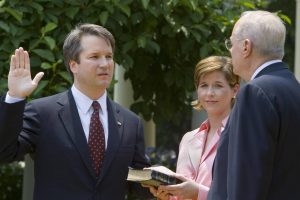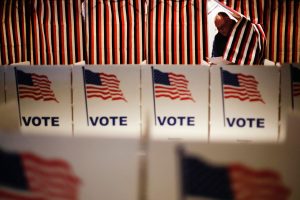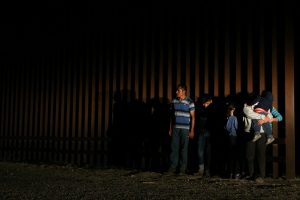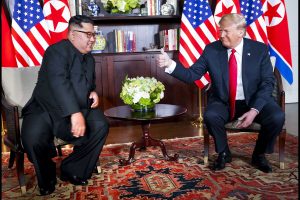Venezuelan President Nicolás Maduro said the country will press ahead with plans to rewrite the constitution after the White House threatened economic sanctions, including a ban on oil imports.
Speaking late on Tuesday, July 18 to the country’s Defense Council, Maduro said, “There is no power in this world that can break the will to be free and independent.”
He added that “now more than ever” Venezuela will proceed with plans to elect a Constituent Assembly to revise the constitution.
Trump administration officials told reporters on Tuesday that the White House is considering a range of sanctions against Venezuela if Maduro proceeds with the vote. The officials declined to give details of what the measure could entail, saying “all options are on the table.”
An official also said that the administration views the upcoming Constituent Assembly election as Maduro’s way of creating a “full dictatorship” in Venezuela.
In addition to rewriting the constitution, the body would have the power to dissolve the National Assembly. Critics and opposition leaders also say it could delay the planned 2018 presidential election.
President Donald Trump said on Monday that the U.S. would take “strong and swift economic actions” if Maduro moves ahead with his plans for the vote.
The threat comes just days after the opposition held a symbolic referendum that asked voters if they rejected Maduro’s plans to create the Constituent Assembly. The opposition claims 98 percent of voters voted yes, but Maduro says the vote is illegal and invalid.
Following the referendum, OAS Secretary General Luis Almagro said: “For the government to try to push ahead to July 30 would be an undemocratic act. The international community must uphold the July 16 results.”
On #16J people delivered a lesson to rulers & opposition. It´s up to them to find the ways to bring #Vzla out of crisis: @Almagro_OEA2015 pic.twitter.com/QBG1CumOFO
— OAS (@OAS_official) July 18, 2017
New sanctions would likely make already-frosty relations between the U.S. and Venezuela worse. Maduro has accused the opposition of working with Washington to force him out of power.
Reacting to Trump, Maduro said: “No one gives Venezuela orders, no foreign government. Donald Trump is not the boss of Venezuela.”
Foreign Minister Samuel Moncada said on state TV that Maduro asked him to review diplomatic relations with the U.S. “because we don’t accept humiliation from anyone.”
U.S. officials told Reuters that sanctions could be imposed on Defense Minister Vladimir Padrino Lopez and United Socialist Party of Venezuela (PSUV) Vice President Diosdado Cabello for alleged human rights violations.
Unofficial referendum shows 98% against constituent assembly
The economic threats come amid months of political tensions and protests that have resulted in more than 100 deaths.
On July 16, a coalition of opposition parties called the Democratic Unity Roundtable (MUD) held a symbolic referendum challenging Maduro’s plans to elect a Constituent Assembly.
Although votes cannot be independently verified, MUD said on July 17 that after 95 percent of the ballots were tallied, 7.2 million of Venezuela’s 19.5 million registered voters had cast a ballot, and 98 percent voted in favor of three conditions – that the Constituent Assembly be approved “by the people of Venezuela,” that the armed forces should defend the 1999 constitution and support the National Assembly, and that elections should be called and a national unity government formed.
The final tallies have yet to be published.
Although the unofficial referendum showed an overwhelming rejection of Maduro’s proposition, the president dismissed the vote as an internal exercise with no bearing on the government, Reuters reported.
The National Electoral Council did not recognize Sunday’s referendum to be legally binding, and Maduro has denounced it, saying the opposition “intends to install a parallel, illegal, unconstitutional, improvised state.”
The constituent assembly election will be held on July 30, when voters will choose 527 delegates for the body. Maduro has said the delegates would be loyal to the Chavismo movement and “the old structures of political parties” would not be welcome.
Opposition plans national strike, unity government
MUD leaders called for a national 24-hour strike for Thursday, July 20, as part of protests against the July 30 vote.
Speaking on behalf of MUD, Freddy Guevara said: “We call on the whole country this Thursday to join massively and peacefully a national civic strike of 24 hours as a mechanism of pressure and preparation for the definitive escalation which will be next week.”
The opposition is also taking the first steps on Wednesday to create what they call a national unity government, which the BBC reports could create a parallel state government.
MUD also says it will appoint new Supreme Court judges on Friday. The court is currently controlled by Maduro’s PSUV party.






